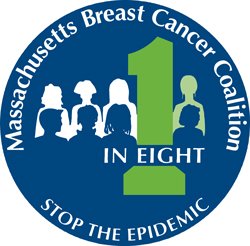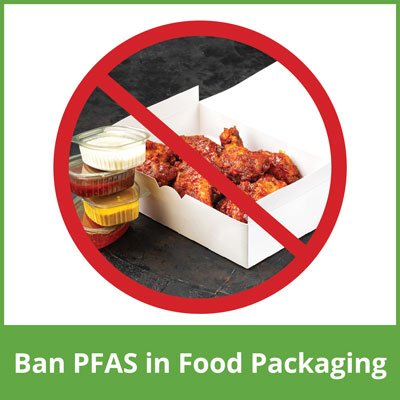Senator Joanne M. Comerford, Chair
Representative Marjorie C. Decker, Chair
Senator Susan L. Moran, Vice Chair
Representative Brian W. Murray, Vice Chair
Re: Support for H.2348, an Act to ban the use of PFAS in food packaging and S.1494, an Act relative to chemicals in food packaging
Dear Chair Comerford, Chair Decker, and members of the Joint Committee on Public Health:
On behalf of Massachusetts Breast Cancer Coalition, dedicated to preventing environmental causes of breast cancer through community education, research advocacy, and changes to public policy, we would like to express our support of bills H.2348 and S.1494.
PFAS exposure has been linked to testicular and kidney cancer, high cholesterol, liver damage, thyroid disease, decreased vaccine response, reduced immune system functioning, and other health impacts. In lab studies, PFAS exposure has also been shown to alter mammary gland development which raises concerns about an increased risk for breast cancer. A 2017 study by Silent Spring Institute of fast food chains found PFAS in almost half of fast food paper wrappers and 20 percent of paperboard samples. In 2019, Silent Spring Institute published a study that found people who ate more restaurant food, including fast food and pizza, and more microwave popcorn had higher levels of PFAS in their blood.
When the public buys food from the grocery store or takeout from a restaurant, they make a reasonable assumption that the products they are purchasing are safe for themselves and their families. The short-chain PFAS most commonly used in food packaging have been shown to cause the same types of toxic effects as the long-chain PFAS that have been phased out. A 2020 report released by the Centers for Disease Control and Prevention found that 36.3% of children ages 2 – 19 consumed fast food on any given day between 2015 and 2018. And, with this consumption comes an increase in PFAS exposure. Not only do PFAS leach into the food with which they come in contact, but they can also make their way into groundwater, soil, and surface waters after disposal in landfills.
As an additional point of concern are studies that have shown that communities of color have greater access to fast food, making them more vulnerable to PFAS exposure from fast food packaging and their harmful effects. This is not only a health issue; it is a social justice issue.
This month the state of California joined Connecticut, Maine, Minnesota, New York, Vermont, and Washington in the list of states banning PFAS from food packaging. It is time for Massachusetts to do the same.
Massachusetts Breast Cancer Coalition respectfully request that these bills be reported favorably from the committee so that they may continue through the legislative process. Bills S. 1494 and H.2348 should be passed as a critical step to ensure the protection of public health. Without the support of bills like these, PFAS accumulation will only worsen and threaten our health, and the health of our children and grandchildren.
Sincerely,
Cheryl Osimo
Executive Director
Massachusetts Breast Cancer Coalition
cosimo@mbcc.org
508-246-3047
mbcc.org

